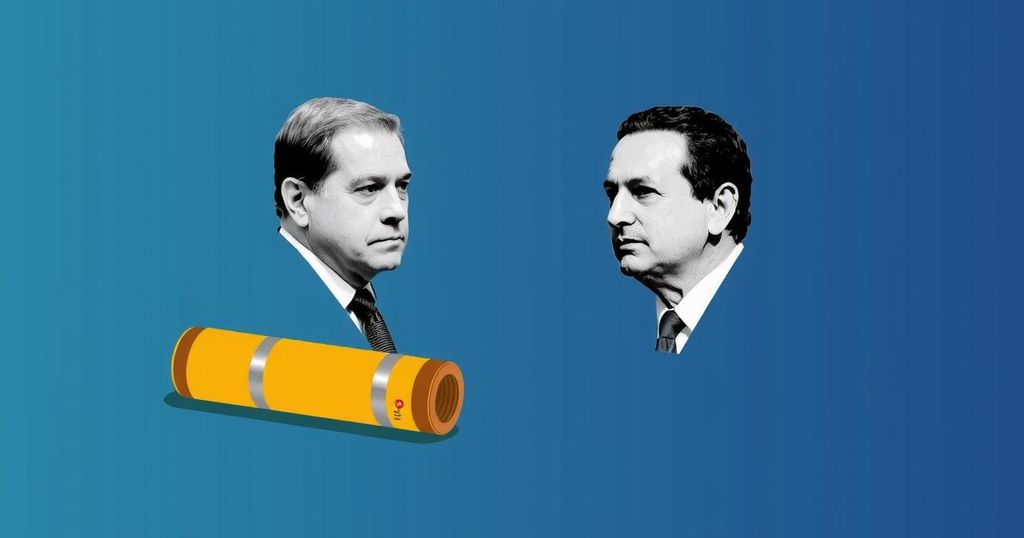The US has sanctioned 21 Venezuelan officials linked to the suppression of post-election protests, citing anti-democratic practices and human rights violations under President Maduro. The sanctions follow the questionable results of the July election, where Maduro claimed victory amid widespread allegations of fraud and repression against opposition figures, including Edmundo Gonzalez, who has since fled to Spain.
The United States has imposed sanctions on 21 officials associated with Venezuelan President Nicolas Maduro, citing their involvement in the suppression of protests following a disputed presidential election held in July. The sanctions reflect persistent concerns regarding anti-democratic practices, as the US Treasury Department noted that at least 25 protesters were killed while around 2,400 were arrested during the unrest.
The sanctions are part of a broader effort to hold accountable those who undermine democratic processes in Venezuela. Bradley Smith, the acting undersecretary for the Treasury, remarked that the government’s attempts to silence dissent following the election are indicative of a desperate regime. Despite claims from Maduro of electoral victory, the lack of detailed election results has led to accusations of fraud from opposition leaders and skepticism from international observers, including The Carter Center.
President Joe Biden’s administration recently acknowledged opposition leader Edmundo Gonzalez as Venezuela’s legitimate leader, following the election’s questionable legitimacy. This shift in recognition, along with the sanctions targeting members of Maduro’s security forces and high-ranking officials, aims to pressure the regime to restore a fair electoral process. The Maduro government faces mounting international isolation, with former supporters in the region expressing doubts over the election results. Gonzalez, facing an arrest warrant from the government, is currently residing in Spain, underscoring the risks faced by members of the Venezuelan opposition.
The situation in Venezuela has been characterized by political turmoil and accusations of electoral malpractice. President Nicolas Maduro has faced significant opposition, particularly from international observers and local political figures, following contested elections. The recent presidential election, which Maduro claims to have won, has drawn sharp criticism due to discrepancies in the voting process and a lack of transparency in the results. The US has historically been critical of Maduro’s leadership, citing human rights violations and undemocratic practices that undermine the legitimacy of his government. This context is essential for understanding the US’s recent actions against Venezuelan officials.
In summary, the United States has taken a firm stance against the Venezuelan government by sanctioning 21 officials in response to their roles in suppressing protests following a contested election. The US administration has recognized opposition leader Edmundo Gonzalez as the legitimate president, reflecting growing discontent with Maduro’s regime. These developments indicate a shift in US foreign policy towards heightened pressure on the Venezuelan leadership, emphasizing the need for democratic processes and accountability in the face of widespread repression.
Original Source: www.aljazeera.com






